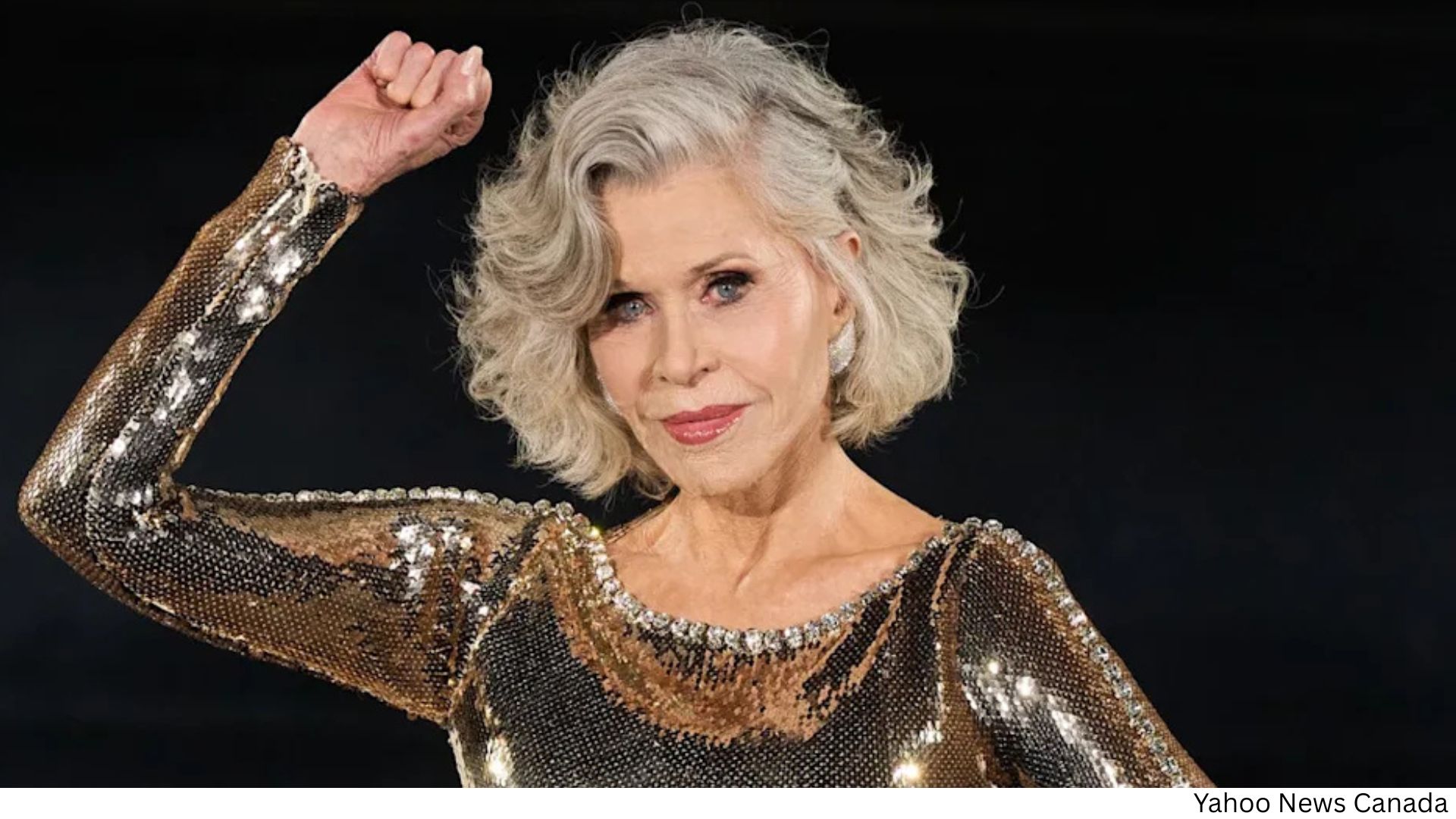Jane Fonda Revives Committee for the First Amendment Amid New Free Speech Battles
Eight decades after her father, Henry Fonda, stood alongside Hollywood legends such as Lucille Ball, Humphrey Bogart, Frank Sinatra, and Judy Garland to defend free speech during the McCarthy era, Jane Fonda is reviving the Committee for the First Amendment. The relaunch comes at what the Academy Award-winning actress and activist describes as “the most frightening moment of my life.”
At 87 years old, Fonda has witnessed wars, cultural upheavals, and political backlash. Yet, in her open letter to the Hollywood community shared with CNN this week, she stressed that the current climate of political pressure, censorship, and corporate capitulation poses a unique and alarming threat.
“I’m 87 years old. I’ve seen war, repression, protest, and backlash. I’ve been celebrated, and I’ve been branded an enemy of the state. But I can tell you this: this is the most frightening moment of my life,” Fonda wrote.
Turning to History for Guidance
Fonda’s letter reflects a deep concern that the principles of free expression, long considered cornerstones of American democracy, are once again under attack. She recalled the historical roots of the original Committee for the First Amendment, which was established in 1947 to push back against blacklisting and government investigations during the McCarthy era.
“When I feel scared, I look to history,” Fonda wrote. “I wish there were a secret playbook with all the answers – but there never has been. What there has been, time and again, is solidarity. Binding together, finding bravery in numbers too big to ignore, and standing up for one another.”
Fonda framed the relaunch as both a symbolic and practical effort to protect creative expression in a volatile time. “That’s why I believe the time is now to relaunch the Committee for the First Amendment – the same Committee my father, Henry Fonda, joined with other artists during the McCarthy era, when so many were silenced or even imprisoned simply for their words and their craft.”
A Wave of Support From Hollywood
Fonda’s plea has already generated overwhelming support. More than 550 prominent figures in Hollywood have signed on to the committee, representing a cross-section of actors, writers, directors, and musicians.
The list of signatories reads like a roll call of some of the most influential voices in entertainment: Aaron Sorkin, Barbra Streisand, Glenn Close, JJ Abrams, Gracie Abrams, John Legend, Julia Louis-Dreyfus, Julianne Moore, Kerry Washington, Larry David, Lily Tomlin, Natalie Portman, Nikki Glaser, Patti LuPone, Pedro Pascal, Quinta Brunson, Rob Reiner, Rosie O’Donnell, Sean Penn, Spike Lee, Viola Davis, Wanda Sykes, Winona Ryder, and Whoopi Goldberg, among many others.
Their involvement underscores not only the credibility of the relaunch but also the widespread concern within the creative community that freedom of speech and artistic independence are increasingly vulnerable.
The Historical Precedent
The Committee for the First Amendment was originally formed in 1947, at the height of Cold War suspicion, as the U.S. government investigated alleged communist ties in Hollywood. Many artists were called before the House Un-American Activities Committee (HUAC) and pressured to name colleagues. Those who refused were blacklisted, losing their careers, reputations, and in some cases, their personal freedom.
The committee, supported by Henry Fonda, Humphrey Bogart, and other stars of the era, sought to defend their peers’ right to free speech. However, the effort was met with fierce criticism, with opponents accusing the group of harboring communist sympathies. For many, the blacklisting era remains one of the darkest chapters in Hollywood history.
By relaunching the organization, Jane Fonda hopes to remind both her peers and the public that moments of political overreach require collective resistance.
Sparked by the Jimmy Kimmel Controversy
The timing of the relaunch is not coincidental. Earlier this month, late-night host Jimmy Kimmel was taken off the air following political pressure from President Donald Trump’s FCC chair, Brendan Carr. The controversy stemmed from remarks Kimmel made in a monologue about Charlie Kirk’s alleged murderer, which critics claimed crossed a line.
Although Kimmel’s show has since returned, the suspension sparked a national conversation about the intersection of politics, media, and corporate responsibility. For Fonda, it served as a stark reminder of how easily powerful figures can attempt to silence dissenting voices.
“The stakes are too high, and silence is too costly,” Fonda wrote in her letter. The Kimmel case, she suggested, illustrated precisely why a unified response is necessary.
Why Now Matters
For Fonda, the relaunch is not merely about nostalgia or family legacy. It is a recognition that the same forces of intimidation and suppression that existed in her father’s time are resurfacing in new forms. Social media outrage cycles, corporate risk aversion, and direct political interference all combine to create a chilling effect on expression.
Her call to action emphasizes the importance of artists using their platforms not only to create but also to protect the freedom to create. “This is the most frightening moment of my life,” she reiterated. “But it’s also the moment to stand together.”
The relaunch of the Committee for the First Amendment is a reminder that history often repeats itself — and that vigilance, solidarity, and courage are required to preserve the freedoms that define democratic societies.
%20(4).png)




.png)
.png)
.png)
.png)
